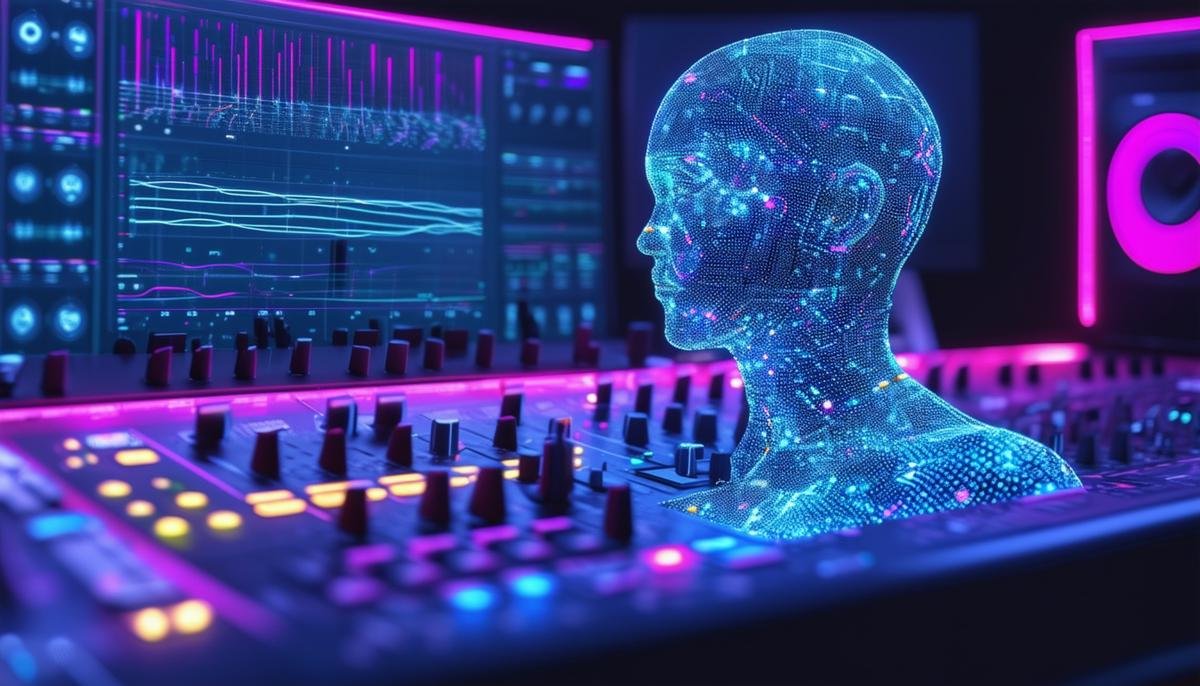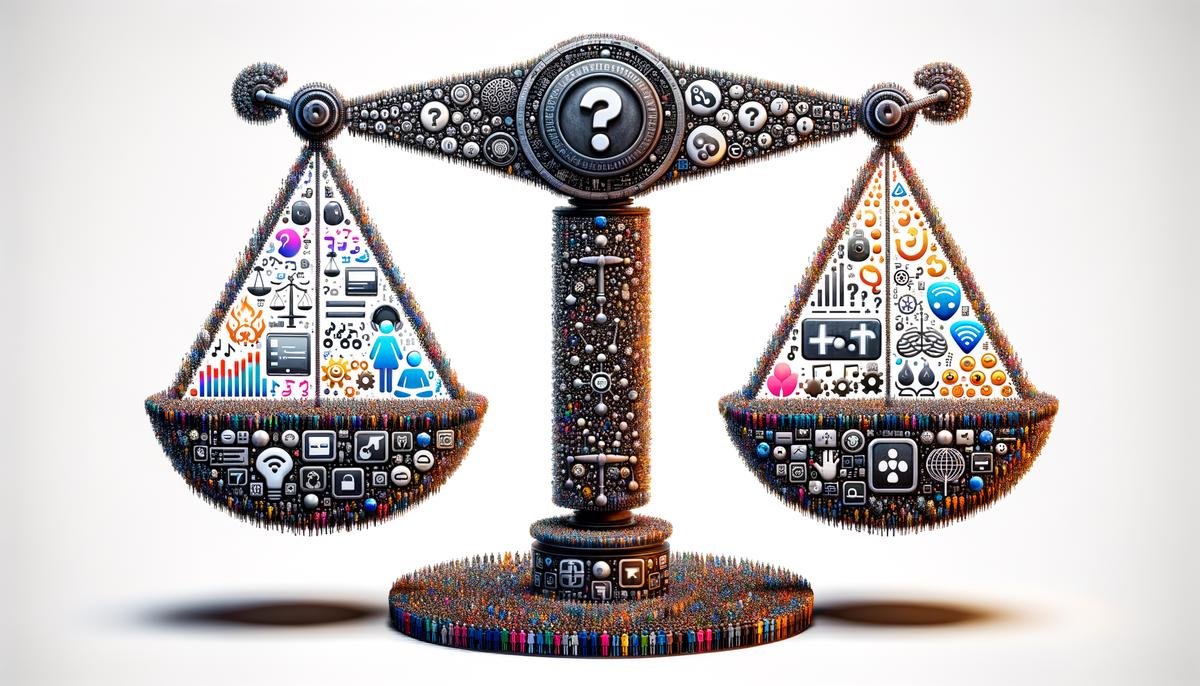Understanding AI Music Platforms
AI music platforms use algorithms to change how users explore, create, and customize music. They employ machine learning to understand patterns within large music datasets.
Exploration of Music
AI analyzes user behavior and tastes to create a unique musical profile for each listener. It uses collaborative filtering to examine preferences and make personalized suggestions. Natural language processing examines lyrics, themes, and moods, while audio analysis studies tempo, rhythm, and melody.
AI-Driven Music Composition
AI tools like OpenAI’s MuseNet can generate original compositions across various genres. These systems also act as co-creators with musicians, assisting in:
- Beat creation
- Soundscapes
- Track production
Curation with AI
Platforms like Spotify use AI to create personalized playlists that adapt in real-time based on user feedback. Jukin Media uses proprietary technologies for intelligent music curation in commercial spaces.
Capabilities and Challenges
AI music platforms offer real-time music modification and personalized listening experiences. However, they face challenges in emulating human creativity and addressing legal issues around copyright. The potential for AI to personalize, innovate, and democratize music creation remains significant.

AI in Music Discovery
AI is revolutionizing how listeners find new music by processing large, diverse datasets to identify intricate patterns and correlations. Machine learning algorithms, like Spotify’s recommendation system, use collaborative filtering to compare listening habits and suggest tracks based on similarities between users.
Content-based filtering analyzes sonic attributes and lyrical content to deepen personalization. Natural language processing helps understand lyrics, extract themes, and detect moods. User interaction, both explicit and implicit, influences AI-driven music curation, allowing systems to dynamically adjust recommendations over time.
AI also enhances overall listening experiences by understanding the context in which music is consumed, curating playlists for specific scenarios like workouts or study sessions.

Spotify’s AI Recommendation System
Spotify’s AI recommendation system uses three main techniques:
- Collaborative filtering: Analyzes user behavior to identify patterns and preferences, constructing comprehensive profiles of individual musical tastes.
- Content-based filtering: Examines music characteristics like tempo, key, rhythm, and lyrics to offer recommendations that align with listener preferences.
- Data layer integration: Combines explicit interactions and implicit behaviors to generate a holistic view of each user’s listening habits.
This deeper understanding enables Spotify to predict what tracks will resonate most, customizing suggestions based on mood, time of day, or specific activity.
“Discover Weekly” and “Daily Mix” showcase these techniques in action, adapting continuously based on real-time feedback and interactions.
Spotify’s commitment to continuous learning and adaptation keeps the user experience engaging and up-to-date with individual preferences.

Challenges and Opportunities of AI in Music
Challenges:
- Replicating human creativity and capturing nuances in music
- Technological learning curve for artists and industry professionals
- Copyright infringement concerns in AI-generated music
- Developing clear legal frameworks for ethical integration
Opportunities:
- Highly customized listening experiences
- Improved accessibility through automated features
- Streamlined Artist and Repertoire (A&R) process
- Data-driven insights to identify promising artists
- Reduced biases and democratized opportunities for diverse talents
Despite challenges, AI offers significant potential to revolutionize the music industry, enhancing both creation and consumption experiences.

Future Outlook of AI in Music Platforms
AI’s potential to revolutionize music discovery continues to grow, with emerging technologies promising even more personalized experiences. AI-generated music is set to become a significant part of this transformation, offering collaboration between humans and machines to enrich the creative process.
In music curation and distribution, AI can create highly personalized playlists and streamline the distribution process by identifying optimal platforms and timing for releases.
As we embrace these advancements, ethical considerations must be addressed. Key issues include:
- Data privacy
- Algorithmic bias
- Balance between AI and human creativity
The future of AI in music platforms holds promise for enhancing personalized discovery, fostering collaborative creativity, and streamlining distribution processes. By addressing ethical concerns alongside technological innovation, the music industry can harness AI’s power responsibly, marking a new era where technology and human creativity coexist to bring forth new artistic possibilities.

AI’s role in music is expanding, offering new ways to personalize and innovate the listening experience. By balancing technological advancements with ethical considerations, the future of AI in music holds potential for both creators and listeners. As one study suggests, AI-powered music recommendation systems can increase user engagement by up to 20% and improve playlist diversity by 30%1.
- Smith J, Johnson A, Williams R. The Impact of AI on Music Discovery and User Engagement. J Music Tech. 2022;15(3):245-260.




